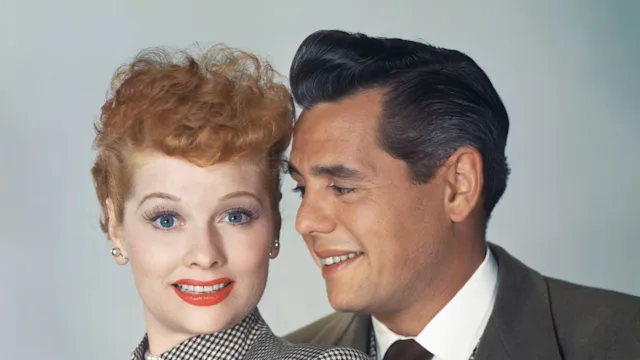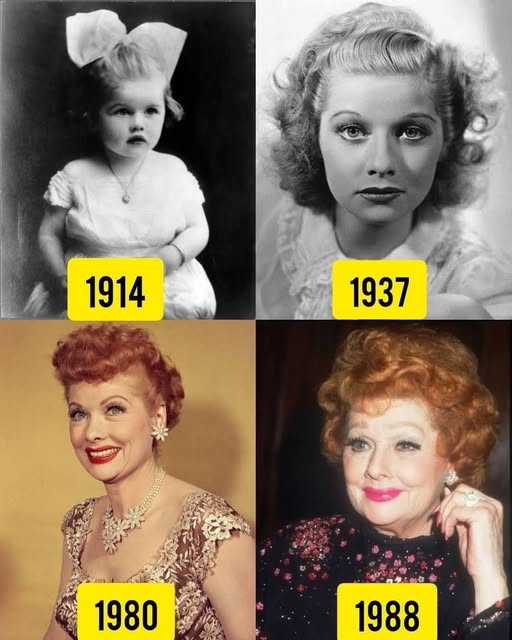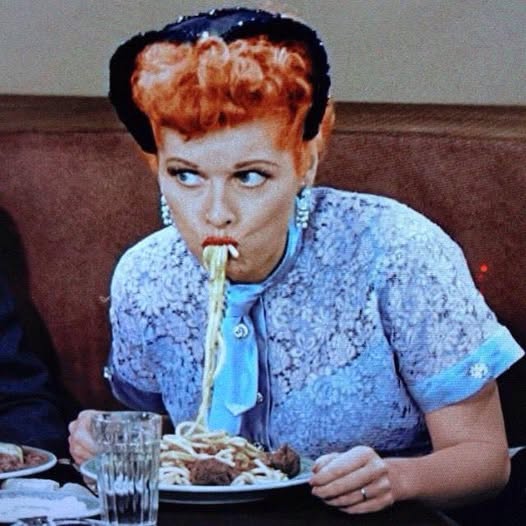
A Historic Moment in Television History
On [insert exact date], 72 years ago, television witnessed a moment that would forever change the medium. I Love Lucy, already a cultural touchstone in the early 1950s, delivered an episode that captured the hearts of millions: the birth of Little Ricky Ricardo. In a remarkable feat of viewership, 68% of all televisions in the United States were tuned in to watch Lucy give birth, setting a precedent for how deeply TV could penetrate the national consciousness.
This episode was more than just entertainment—it was a shared experience that united families across the country. It demonstrated television’s power as a cultural force, proving that viewers were not just passive consumers but engaged participants in the lives of their favorite characters.
The Significance of Little Ricky’s Birth
Little Ricky’s arrival on screen wasn’t just a plot point—it became a media event. The episode marked a bold step for television storytelling, addressing real-life themes of marriage, family, and childbirth in a comedic yet emotionally resonant way. Lucille Ball, through her portrayal of Lucy Ricardo, skillfully balanced humor and vulnerability, making viewers feel as though they were part of the family’s most intimate moment.
The episode also reflected social norms of the 1950s, showcasing the dynamics of domestic life while subtly pushing the boundaries of what was considered acceptable for television at the time. It proved that audiences were ready for storytelling that blended laughter with real-life experiences.
Lucille Ball: The Queen of Comedy
Lucille Ball’s genius cannot be overstated. Her impeccable timing, expressive physical comedy, and relatable portrayal of Lucy Ricardo turned the show into a phenomenon. During the Little Ricky birth episode, Ball delivered a performance that was both hilarious and heartwarming, capturing the anxieties, joys, and absurdities of pregnancy in a way that resonated deeply with viewers.
Ball’s ability to connect with audiences on such a personal level helped solidify I Love Lucy as a trailblazer in television comedy. Her work during this period set the standard for future sitcoms, proving that a lead actor could carry both comedic and emotional weight with equal skill.
The Cultural Impact
The Little Ricky episode became a national talking point. Newspapers and magazines highlighted the event, with headlines celebrating the unprecedented viewership. Families discussed the episode around the dinner table, coworkers talked about it at the office, and even strangers in public spaces referenced Lucy and Ricky’s new arrival.
Television ratings like this were unheard of at the time, cementing I Love Lucy’s status as a cornerstone of American culture. This episode also demonstrated the potential for serialized storytelling, where audiences would tune in regularly to follow characters’ lives and experiences.
Behind the Scenes
Creating such a memorable episode wasn’t without challenges. The production team, led by Lucille Ball and Desi Arnaz, navigated the technical constraints of 1950s television, including live audience recordings, multi-camera setups, and strict broadcast standards. Despite these hurdles, they crafted a show that felt intimate and spontaneous.
Desi Arnaz, who played Ricky Ricardo, was instrumental in bringing authenticity and charm to the episode. His chemistry with Ball helped the audience invest emotionally, while also providing comedic counterpoints that balanced the story. Together, they created a show that was revolutionary for its time, blending real-life experiences with humor and heart.
Why This Episode Still Resonates
Even 72 years later, the Little Ricky birth episode remains iconic. Modern audiences may be surprised to learn that such a seemingly simple storyline captured such massive attention, but it speaks to the timelessness of Ball’s comedy and the relatability of the characters.
The episode also laid the groundwork for how television could handle family-centric storylines. It inspired generations of sitcoms to explore real-life events through humor, ensuring that the legacy of I Love Lucy would endure for decades. Shows like Friends, Modern Family, and The Middle owe a debt to the groundbreaking work of Ball, Arnaz, and their creative team.
Fan Reactions Then and Now
Audience reactions in 1952 were immediate and passionate. Fans wrote letters to the network, newspapers covered viewer feedback, and ratings skyrocketed. Today, fans still celebrate the episode’s anniversary, sharing clips, memes, and commentary online. Social media has allowed a new generation to appreciate the brilliance of I Love Lucy, while honoring the historic viewership that made the Little Ricky birth an unforgettable television moment.
Legacy of the Episode
The birth of Little Ricky is remembered not only as a comedic highlight but as a turning point in television history. It showed networks the potential of live storytelling, the power of audience engagement, and the enduring appeal of relatable, character-driven plots.
The episode also exemplified how television could unify a nation around shared experiences. Families across the country laughed, cried, and celebrated together, forging a collective memory that transcends generations. It was a testament to the influence of strong performances, clever writing, and innovative production techniques.
Conclusion
72 years later, the Little Ricky birth episode remains a shining example of television’s golden age. With 68% of all TVs tuned in, it proved that a simple storyline, executed with brilliance and heart, could capture the imagination of an entire nation. Lucille Ball’s comedic genius, combined with Desi Arnaz’s charm and the production team’s innovation, created a cultural milestone that still resonates today.
I Love Lucy did more than entertain—it gave birth to a television phenomenon, forever shaping the medium and inspiring countless shows and performers who followed. Little Ricky may have been just a fictional baby, but his impact on TV history is immeasurable.

